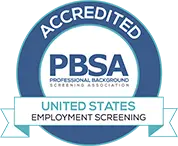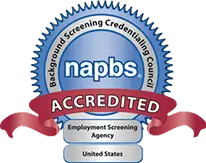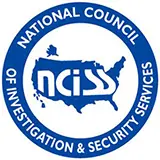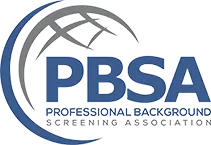Here at ASG, Corporate Investigations are something we take pride in being well-versed and ready to handle. From simple misconduct in the workplace all the way to fraud and embezzlement, our investigative staff has the ability to design a corporate investigation and work through it to meet your company’s exact needs.
Corporate Investigations can become a necessity for many reasons. Unfortunately for most companies, that necessity usually emerges when something happens that warrants a need to look deeper and figure out the root cause of a problem. While some investigations are preemptive, such as due diligence, the majority of all corporate investigations are created due to some form of asset misuse, employee misconduct and time theft, general workplace incidents, and fraudulent activity. For example, we picked out five things that we see as commonly being “stolen” or “taken without permission” form the workplace:
5. Time
Sleeping on the job is something all supervisors should be aware of. While we don’t necessarily mean this statement literally, it could certainly qualify for the need of a corporate investigation. Many companies offer their employees the benefits of making their own schedules, working from home privileges, and regular travel which is all unsupervised—making trust a very important part of the hiring process.
Issues like this can arise in all industries including corporate workplaces and industrial workplaces. Our staff recently worked on a case where a client hired us because a field worker of his was reportedly “stuck in traffic” and missing a fair amount of his appointments. Fortunately for this client, he did not trust his employee as much as we see others doing. After a short bout of surveillance activity, we discovered that this employee could regularly be observed sleeping in his car and heading back to his centrally-located home for long periods of time during the day.
4. Office Supplies
 Some managers may not want to believe it, but something probably gets stolen from the stockroom or kitchen in their workplace on a daily basis. According to The Atlantic, workplace theft is actually on the rise—it has been attributed to a decrease in supervision, the ease of selling things online, and a “general decline in employee honesty.”[1] While pens and pencils are the most common things stolen, other office supplies like reems of paper, post-it notes, and staplers are regularly stolen from the workplace. Even kitchen items like cups, coffee mugs, silverware, napkins, and plates are also regularly taken.
Some managers may not want to believe it, but something probably gets stolen from the stockroom or kitchen in their workplace on a daily basis. According to The Atlantic, workplace theft is actually on the rise—it has been attributed to a decrease in supervision, the ease of selling things online, and a “general decline in employee honesty.”[1] While pens and pencils are the most common things stolen, other office supplies like reems of paper, post-it notes, and staplers are regularly stolen from the workplace. Even kitchen items like cups, coffee mugs, silverware, napkins, and plates are also regularly taken.
While only serious and habitual allegations of asset misuse like this may warrant an in-depth corporate investigation, it is important to know that as a company, its not right to just stand by and allot it to happen. Many companies even stock extra materials like toilet paper, just to make sure that they don’t run out in between delivered.
3. Personal Items
Cell phones, watches, wallets, other jewelry and technological devices, and even clothing are all commonly lost or stolen items in the  workplace. The most unfortunate part about these items going missing is that they are usually taken by those we work with. Coworkers are supposed to be trusted; those who we see everyday and have conversations with, share family details, and eat often become friends and people we continue to mingle with even long after we leave a place of employment.
workplace. The most unfortunate part about these items going missing is that they are usually taken by those we work with. Coworkers are supposed to be trusted; those who we see everyday and have conversations with, share family details, and eat often become friends and people we continue to mingle with even long after we leave a place of employment.
As sad as it can be, our staff members have experience investigating workplace incidents like these and have a familiarity with how to carry out corporate investigations like these in workplaces of all sizes. Sometimes these cases aren’t ever solved, and sometimes admissions of guilt are made by the perpetrator before the investigation ever ends—nevertheless, it can bring peace of mind to your workplace and re-instill the trust needed between management and lower level employees.
2. Merchandise
 Many think that this category is only needs to be worked about by retailers: Target, Wal-Mart, and Macy’s all employ a loss prevention team in each store that is in charge of investigating external and internal risks and losses that happen in their stores. However, retail stores are not the only companies that worry about merchandise theft: software companies, automobile manufacturers, and other companies in the business of keeping their “ideas” private as well as other intellectual property are concerned about this happening every day. While crimes like these can happen both internally and externally, they are often left to be investigated by corporate investigators like our experienced staff here at ASG.
Many think that this category is only needs to be worked about by retailers: Target, Wal-Mart, and Macy’s all employ a loss prevention team in each store that is in charge of investigating external and internal risks and losses that happen in their stores. However, retail stores are not the only companies that worry about merchandise theft: software companies, automobile manufacturers, and other companies in the business of keeping their “ideas” private as well as other intellectual property are concerned about this happening every day. While crimes like these can happen both internally and externally, they are often left to be investigated by corporate investigators like our experienced staff here at ASG.
Our staff employs certified fraud examiners and certified professional investigators that have the ability to see through the lines, retrieve lost assets, and assist with litigation when it matters most.
1. Cash
Fraud is a widely used term that could legitimately be used to described each of the above categories, however, in this instance we are trying  to describe the extreme. For instance, a company’s CEO implementing an embezzlement scheme that in-turn results in a personal gain; or even a cashier periodically stealing directly from the register. Instances like these are usually harder to detect and may involve law enforcement interaction, however, a company may choose to run their own corporate investigation in order to keep the matter secret or to try and handle the problem internally.
to describe the extreme. For instance, a company’s CEO implementing an embezzlement scheme that in-turn results in a personal gain; or even a cashier periodically stealing directly from the register. Instances like these are usually harder to detect and may involve law enforcement interaction, however, a company may choose to run their own corporate investigation in order to keep the matter secret or to try and handle the problem internally.
Recently, our staff at ASG investigated a case where a highly ranked member of an advisory firm allegedly channeled business-related funds into private ventures—worst of all, our client believed he was a direct stakeholder in these businesses and was, in turn, being compensated. However serious the problem may be, our staff can design and conduct a corporate investigations for large companies and small businesses.










